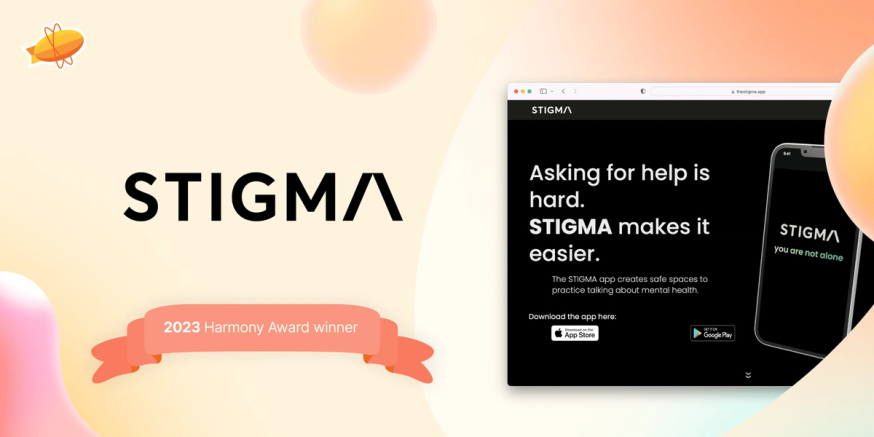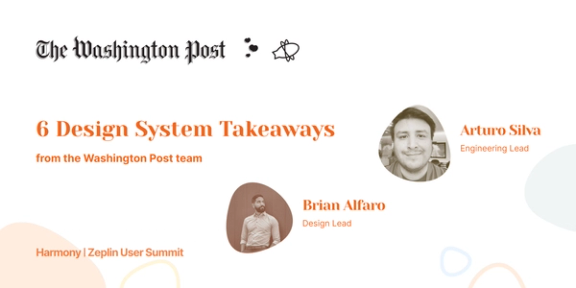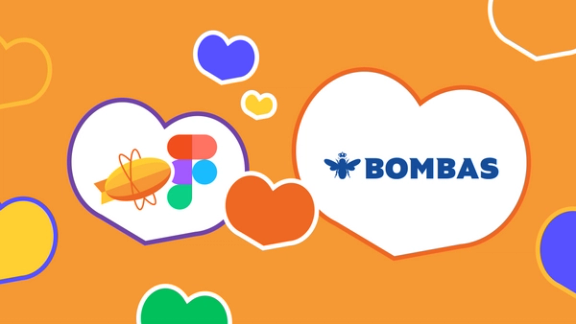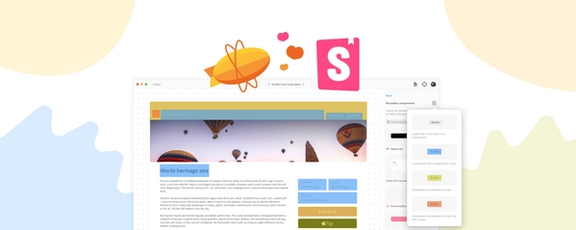Apps put everything we need right at our fingertips — food, finances, taxis, doctors, you name it. But there are still things technology can't solve, like many of the challenges and obstacles that come with having a mental illness. There are remote therapy services and self-care apps, but these tools don't address the mental health stigma that prevents people from seeking help in the first place.
In August of 2022, STIGMA set out to tackle precisely that problem with the launch of its eponymous app. The platform allows users to exchange stories in an ever-expanding network of kindness, empathy, and understanding, offering judgment-free support that users might not find elsewhere. Its impact was immediate — within ten weeks of its launch, STIGMA was named one of Google Play's "Best Apps of 2022."
STIGMA is uniquely designed not just to provide support, but to break down the barriers that keep people isolated from the help they need. It's making a major difference in the lives of thousands of people every day — and that's why we're so proud to call STIGMA one of Zeplin's 2023 Harmony Award winners.
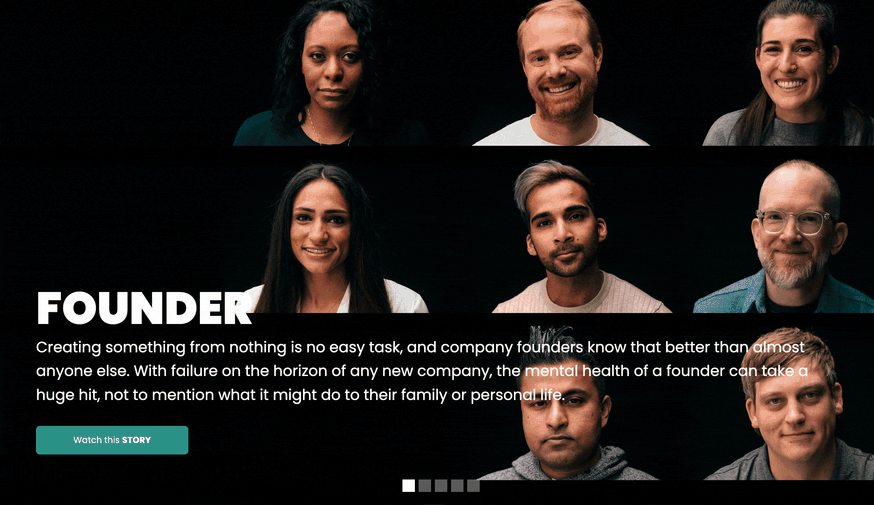
An asynchronous environment that brings users together
Asynchronous chat platforms are great for remote workplaces and project collaboration, but they leave something to be desired when it comes to building relationships across time zones. For the most part, real conversations are limited to people who are online at the same time, and colleagues in distant locales rarely have a chance to get to know each other.
STIGMA isn't an asynchronous chat platform, because it's not a chat platform at all. It's an online community where, instead of chatting in real time, users upload "stories" in text, audio, or video formats, either as standalone messages or in response to other users' requests for situation-specific support. As a result, users in the same time zone — in the same neighborhood, even — communicate in the exact same cadence that two people from opposite ends of the world do.
The result? STIGMA is one single blended community, not a collection of networks that are segregated by time zones. Users get the benefit of a truly diverse collection of perspectives, which in turn offers a wider network of support and helps to increase cross-cultural understanding.
Accessibility in more than name only
Typically, when users with disabilities join other social platforms — say, a deaf person on TikTok or a blind person on Reddit — it's up to them to use supplementary tools like auto-captioners and screen readers to adapt to the platform's content format. Though these tools make online communities accessible to all, the fact remains that the platform itself isn't accessible without them. It sends a message to users with disabilities that the platform, and the community it hosts, weren't built with their needs in mind.
STIGMA's presentation of three equal content formats makes clear that the platform isn't just accommodating to users with disabilities — it's built for them, just as much as it's built for the rest of the users on the app. Every user picks the content format that works best for them, and whether they make their choice based on preference or on a specific accessibility need, the user experience is the same.
An emphasis on safety
Every online platform is accountable for keeping its users safe, but the stakes are much higher for an app that's explicitly dedicated to hosting sensitive conversations about users' mental health. A nasty message in a normal forum might be unpleasant, but within the STIGMA community, it can be triggering or even retraumatizing.
In addition to its community-building benefits, STIGMA's asynchronous messaging format gives the platform more control over what content reaches users. Moderators can flag and delete harmful content before it has a chance to affect the community.
Not all potentially harmful content is malicious, though. A genuine conversation about addiction could be triggering to someone in the early stages of their own recovery, but that doesn't mean the conversation should be removed from the platform altogether. Instead, STIGMA adds tags to each post and allows individuals to filter the content they see and selectively avoid potentially triggering topics.
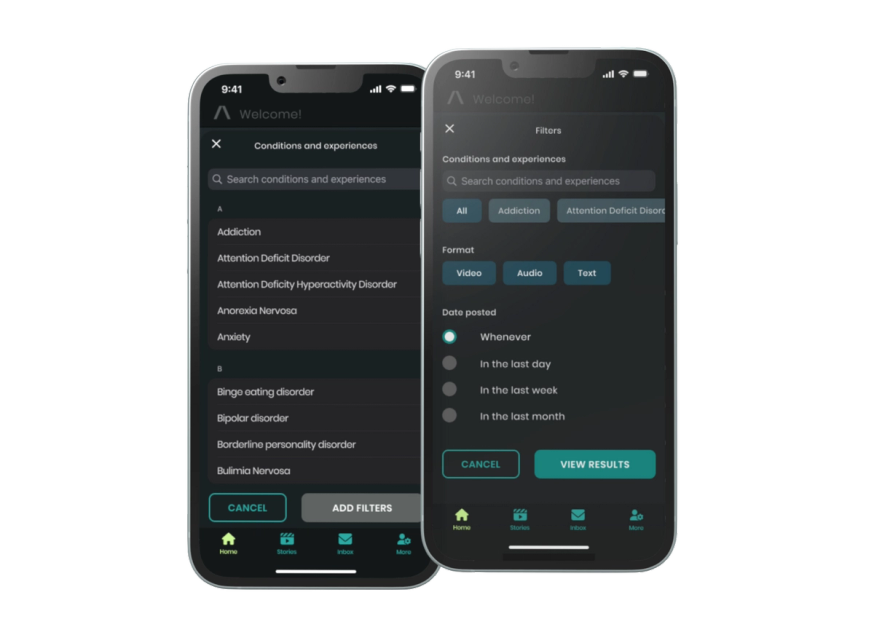
Zeplin helped STIGMA design a safe digital environment with precision
It takes a lot of work to build an environment that's truly safe for sensitive, important conversations about mental health. STIGMA relied heavily on Zeplin to keep their team synced and organized as they focused on perfecting the details of their user experience. "If a design wasn't perfect yet, we were able to iterate on it without losing track of our files," says Brett Gilbert, Head of Product at STIGMA. The team used comments to collaborate remotely on things like in-app copy and design details without slowing the pace of production. "This made async communication so much easier, as our team is all remote."
When it came time for development, STIGMA used Zeplin to execute their design delivery process and ensure engineers had a clear and thorough understanding of the designs. "It was a huge help when walking through grooming sessions with our engineering team," Brett says. When design updates were required, the team could use comments and design tokens to collaborate smoothly with the engineering team and avoid creating unnecessary work. "It definitely kept our designer flexible and reduced her headaches."
Congratulations to STIGMA on their well-deserved win! We're so proud to have helped play a part in bringing this beautiful product to life. STIGMA is sure to have a profoundly positive impact on thousands of lives, and we're excited to be there to support them every step of the way.
Learn more about how Zeplin helps complex teams build beautiful products, or get in touch for personalized input from our crew.

